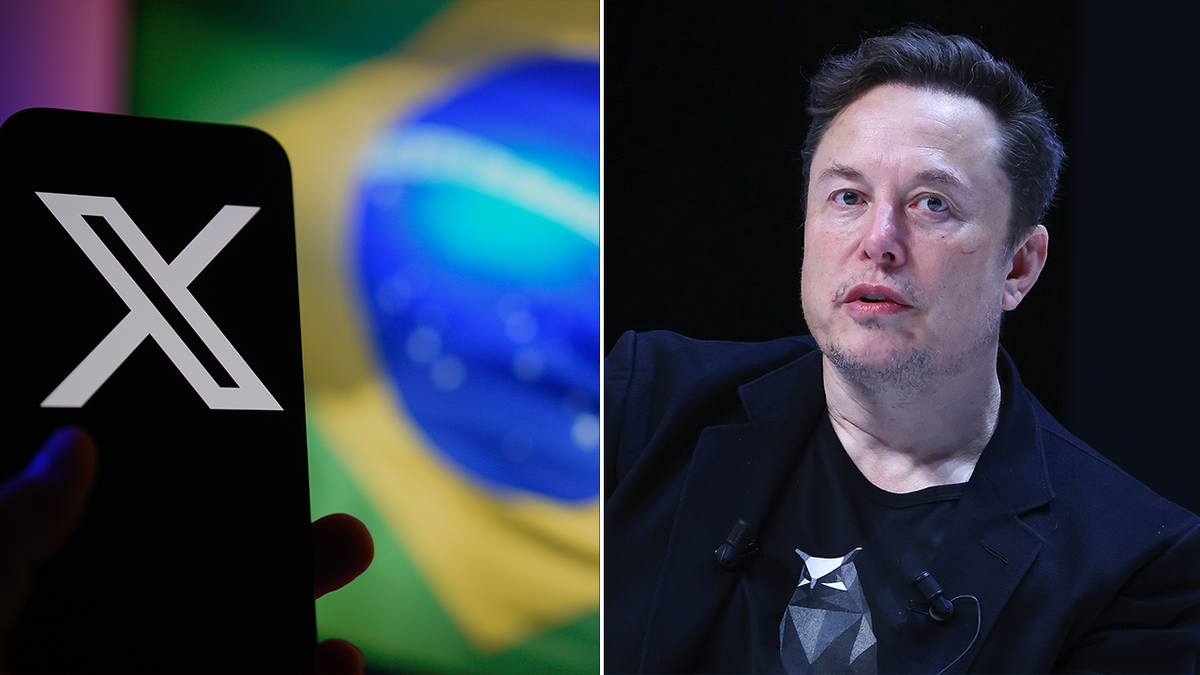Brazilians and the local crypto community are caught in the crossfire of Elon Musk and the legal authorities’ free speech dispute, sparked by Brazil’s ban on X.
Brazil’s social networking site X ban has severely impacted the country’s cryptocurrency sector because so many people in the blockchain space rely on it for communication and promotion, including researchers, influencers, fundraisers, conference organizers, accelerators, and researchers.
When Brazilian Supreme Court Justice Alexandre de Moraes determined that X was permitting and promoting false information against former Brazilian President Jair Bolsonaro, X was forced to disconnect over 22 million users from the platform on August 30.
Elon Musk’s social networking company has lost one of its largest markets due to the ban.

Since X is primarily used for publishing casual, sporadic thoughts, Victor Cioffi, growth manager and core team member of cryptocurrency accelerator Solana Superteam Brasil, said that X is the most popular social media network among young Brazilians.
But the cryptocurrency business uses it as a professional tool to market their brands and concepts, and most significantly, it serves as a gateway for them to interact with the world’s cryptocurrency audience:
“X is used to reach the global audience, so if you don’t have X for your marketing strategy, it’s like losing an arm.”
According to Cioffi, the Brazilian prohibition on X makes it necessary to decide between following the law and scurrying to make connections on other social media sites or becoming an outlaw to communicate and market your goods to the outside world.
The crypto sector in Brazil is losing customers and money.
According to a 2024 study by bitcoin price tracker CoinGecko, X is by far the most popular social networking platform among cryptocurrency users and is the best place for them to obtain helpful information.
X offers a big audience for influencers and cryptocurrency companies to start campaigns and a simple way to reach new prospective customers.
Because X was their primary communication channel, João Ferreira, co-founder and CEO of the Brazilian decentralized finance (DeFi) app Picnic, said that his company has already lost “half of its reach.”
“As a founder, it hurts quite a bit in terms of fundraising and getting in touch with VCs and other influential individuals,” according to Ferreira.

Casta Crypto, a Brazilian content developer and educator, said that X served as his main avenue for speaking about new projects and initiatives and his means of regularly interacting with his audience.
Since YouTube accounts for one-third of his viewership, he said his audience had effectively shrunk by almost two-thirds since the suspension.
A well-known Brazilian crypto influencer informed said that she “cannot sleep for several days” because she believed her audience’s “treasure” might be in danger. The influencer asked to remain nameless to avoid potential consequences. By engagement, X was her most popular social media account.
She added that she was starting to feel lonely as an influencer because “it’s a way to connect with people.”
She joked that she had started to believe the recent suspensions of Brazilian cryptocurrency influencers’ Instagram profiles could be connected to the X ban, claiming that the prohibition had made her highly paranoid.
According to the unnamed influencer, “everyone is trying to find alternative solutions,” as reported by Cointelegraph.
She noticed an increase in the number of sites, such as posts from YouTube Community, Substack, Instagram, Farcaster, Threads, Nostr, and Bluesky, which has seen an increase in user count of over a million since the X ban.
Though he has explored substitutes, Casta Crypto acknowledged that “so far, it was impossible to replicate these dynamics [of X] anywhere else.”
“Had not only lost a significant amount of audience but of coordination and a precious network effect,” he lamented to the Brazilian community.
DAOs and cryptocurrency conferences suffer.
The foundation of the cryptocurrency market is comprised of crypto conferences.
Product manager at blockchain development company Blockful and host of the cryptocurrency conference ETH Floripa, Daniela Zschaber, said that the X blackout is significantly impacting her business.
Though ETH Floripa is scheduled for February 2025, she is concerned that “any access to X would be critical at this stage,” less than six months before the event.
“We’ve lost important data such as event engagement levels, potential sponsors, and interested partners […] without X; we lose the network effect within the Web3 space.”
According to Zschaber, their events almost always have the maximum number of guests, even though they are occasionally smaller and targeted at Brazilians.
But because they are missing X, their smaller events—like the next conference in Curitiba—only draw roughly half the expected attendees. This is because they are missing a crucial coordination tool.
Global and decentralized autonomous organizations (DAOs) need digital tools for efficient coordination.
According to Zschaber, her company Blockful, which works directly with DAOs, has lost its primary means of contact. She said the company no longer had access to vital data from partners, stakeholders, and other DAOs.
Significant updates are frequently provided in real-time on X, according to Zschaber, even though DAOs usually coordinate via Discord.
It’s not because they don’t know anything; instead, “it’s about the practicality of accessing information,” which makes the procedure more cumbersome and slower.
This lack of instant access to crucial information may also impact regular Brazilian cryptocurrency owners.
The unidentified influencer pointed out several crypto protocols that use X to inform consumers of potential hacks and security lapses. Brazilians fall prey to hacks such as the one that crippled the DeFi staking system Ether.fi would not be notified in real-time, making them more vulnerable to scams.
While many people do not want to leave the nation, many have considered migrating abroad to avoid these problems as the situation worsens and the ban remains. Ferreira stated that the X ban “was the last straw for me” and that he is “actively looking to move out of Brazil.”
Brazilians discuss the X prohibition.
In Brazil, the X-ban controversy is still very much alive. Some have shaped the storyline to depict it as a conflict between billionaires and Brazilian state sovereignty, while others see it as a matter of free expression.
The Brazilian Constitution of 1988 places various restrictions on the right to free speech, as Joao Victor Archegas, coordinator at the Institute of Technology and Society and founder of the research group ModeraLab on digital constitutionalism and content moderation, explained to Cointelegraph.
The right to free speech “may be legitimately restricted to protect other equally important fundamental rights,” according to Archegas.
According to him, the main point of contention in Brazil is whether or not X’s ban for breaking Brazilian law was appropriate.
Archegas stated that “one cannot lose sight of the fact that X forced its way out by outright defying the Brazilian Supreme Court in various cases,” notwithstanding the opinion held by some that the prohibition is unfair and an explicit attack on the right to free speech.
Although the Supreme Court’s rulings are subject to criticism, Archegas acknowledged that they “do not point to any signs of deliberate, widespread political censorship in the country.” According to Archegas, Brazil, like other nations, is figuring out how to deal with some unfavorable externalities of platforms like X.
While there is a justifiable fear of excessive judicial intervention, mainly when fining individuals discovered to have accessed X over a VPN, all Brazilian businesses must pursue legal remedies. Disobeying the court’s jurisdiction is not an option.
Many fear that because of self-censorship, X will never revert to its previous state while the discussion continues. According to Crypto Casta, “self-censorship is a developing trend in the Western world since the cancel culture emerged and became weaponized as the unwritten rule for controlling speech and accepted world views.”
For Crypto Casta, the issue is that the state will intervene to uphold these norms as soon as vocal voices question unspoken conventions and the threat of “cancellation” ceases to be a deterrent.
Ferreira is pessimistic and thinks most people won’t care, and that X might never return to its former state.



